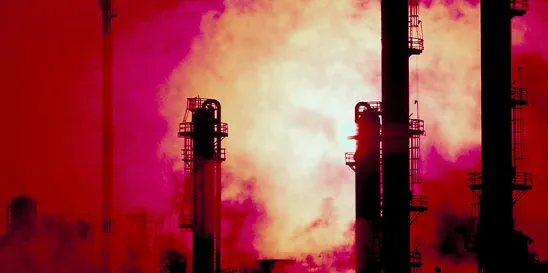The U.S. Environmental Protection Agency’s (EPA) Office of Civil Enforcement recently published an Enforcement Alert with the purported objective of “reminding” companies of their compliance obligations under the Benzene Waste Operations NESHAP (BWON) (40 C.F.R. Part 61, Subpart FF) and, for refineries, NSPS QQQ. (40 C.F.R. Part 60, Subpart QQQ).i The Agency calls out failure to perform visual inspections and no detectable emissions (NDE) testing as key noncompliance issues.
Companies with plants subject to these rules should take note, as the Enforcement Alert is far more than a “reminder” of compliance in several fundamental ways:
- The Alert effectively formalizes an enforcement initiative that EPA Regions V and VI began late last year in the wake of the BP Products North America Inc. (BPP) Whiting Refinery Consent Decree, which resulted in an eye-watering civil penalty of $40 million, a $5 million Supplemental Environmental Project, and nearly $200 million in injunctive relief that included the installation of benzene strippers. Nearly a dozen Clean Air Act (CAA) Section 114 Information Collection Requests (ICRs) have been issued targeting facilities subject to the BWON and NSPS QQQ, and many more are expected. Those information requests are the precursor to enforcement actions.
- The Alert points to the BPP Whiting Refinery settlement as the model template for BWON and NSPS compliance, signaling another aggressive use of the CAA’s good air pollution control practice (GAPCP) requirements to demand enhanced compliance obligations that the rules do not require on their face. EPA typically uses Enforcement Alerts like this one to place industry “on notice” of this new interpretation of compliance requirements. The Agency will expect companies to adopt these new standards, and failure to do so will result in enforcement.
- The Alert revives and expands a key component of the Agency’s long-standing Petroleum Refinery Initiative, a national enforcement effort that, since 2000, led to 37 separate federal consent decrees, which collectively imposed $7 billion in new control technologies and more than $100 million in civil penalties and covered 95% of the nation’s refining capacity. The BWON was one of four key components of the Refinery Initiative. The Alert signals that EPA is taking a fresh look at refinery BWON compliance (which it has now re-defined to go beyond what those consent decrees required) and is expanding this focus to chemical manufacturers as well.
- The Alert targets two industry sectors that may have plants already under federal consent decrees and may be more vulnerable to allegations of noncompliance. Many refineries and chemical plants may still operate under consent decrees from past Agency enforcement initiatives (such as the prior Refinery Initiative and the ongoing Flaring Initiative). These facilities may be more vulnerable to enforcement, as EPA can leverage those ongoing obligations to force the adoption of these new requirements (such as by refusing to terminate a consent decree until the facility demonstrates full compliance with these new obligations or expanding the existing consent decree to include these new requirements).
- Although the Alert is silent on criminal enforcement, as part of its Petroleum Refinery Initiative, EPA sought criminal actions against a number of companies for BWON noncompliance. That may come into play here as well. BWON is one of the most technically complex rules EPA has promulgated under the CAA, has multiple pitfalls, and requires annual certifications on total benzene emissions, making it a prime rule for potential criminal enforcement.
What Can You Do?
- Familiarize yourself with the Enforcement Alert and the BPP Whiting Refinery settlement – EPA’s goal is to up-level BWON and NSPS QQQ compliance in similar ways.
- Inventory your enforcement risks. Determine whether your plants are in Environmental Justice (EJ) communities, have current or recent BWON or NSPS QQQ non-compliance issues (particularly fenceline monitoring issues), or are operating under a federal CAA consent decree. EPA will continue to prioritize enforcement in communities facing EJ concerns.
- Consider third-party reviews or audits to determine current areas of potential BWON or QQQ non-compliance and immediately correct any non-compliance.
- Develop a strategy for addressing the Enforcement Alert. At minimum, companies should be prepared to receive and respond to a CAA 114 ICR and consider whether they can comply with EPA’s preferred “6 BQ” (6 Mg) compliance option.
- Evaluate the cost and feasibility of the BPP Whiting Refinery injunctive relief – long term, what EPA is trying to seek through enforcement will likely become mandatory by rule. Key elements include:
- Implementation of the EPA-preferred 6 BQ BWON compliance option;
- Preparation of a program document that specifies the regulatory requirements applicable to each piece of covered equipment;
- Using dual carbon canisters to control benzene emissions;
- Completing an NDE engineering assessment for each piece of waste management equipment subject to an NDE standard;
- Installing and using low-emission components or leak-free design components;
- Conducting a root-cause analysis when detectable emissions above the NDE standard have occurred twice; and
- Conducting BWON and QQQ third-party audits every two years.
- Review and evaluate your corporate compliance plan to confirm the plan is well-designed to detect misconduct, particularly in light of recent remarks by Deputy Attorney General Lisa Monaco emphasizing DOJ will aggressively investigate and prosecute white collar crimes.
i U.S. Environmental Protection Agency, Office of Civil Enforcement, Enforcement Alert - Violations at Petroleum Refineries and Ethylene Plants Cause Excess Benzene and Other VOC Emissions in Nearby Communities (February 2024).








 />i
/>i
